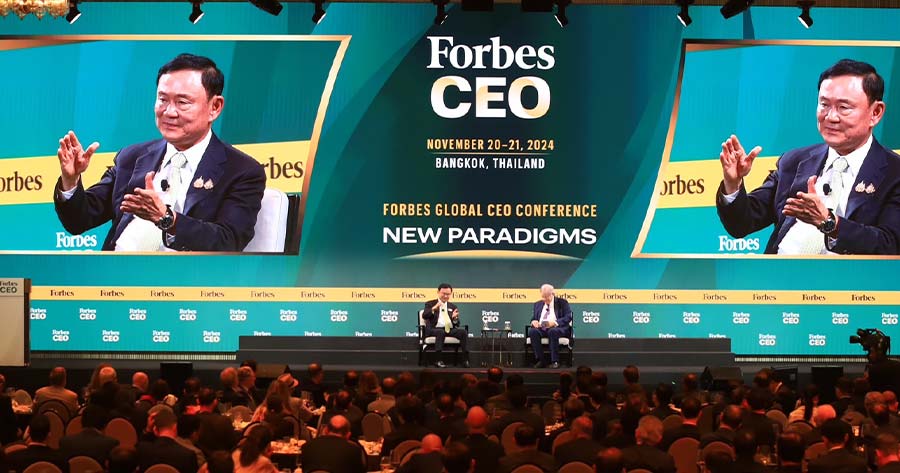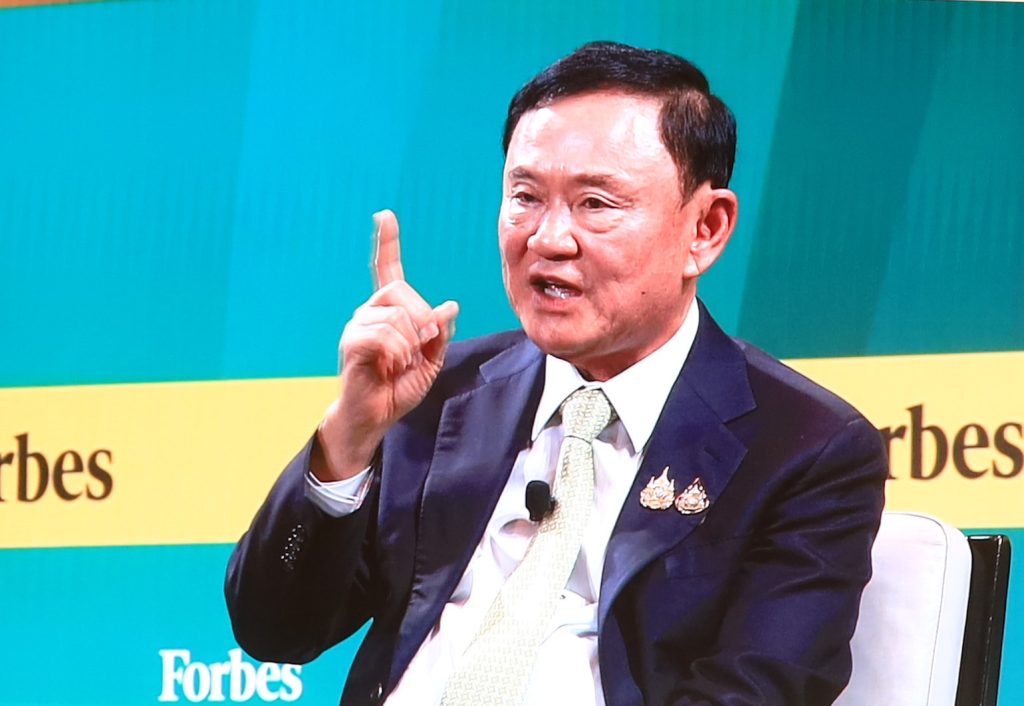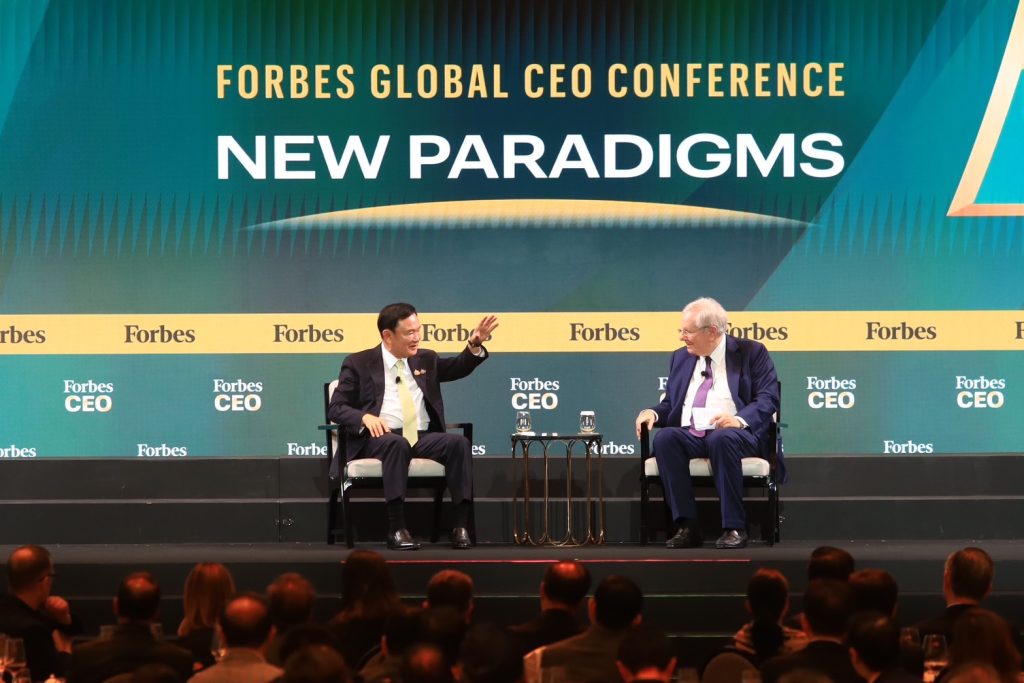Thaksin Shinawatra, the Former Prime Minister of Thailand, engaged in a dialogue with Steve Forbes, Chairman and Editor-in-Chief of Forbes Media, at the 22nd Forbes Global CEO Conference. Their discourse centered on Thailand’s prospective trajectory and the resolution of prevailing challenges that Thaksin believes could facilitate further advancement for the nation.
The former prime minister initiated the panel discussion by elucidating the formation of a successful coalition government. Achieving a consensus among coalition parties is imperative for effective governance. Despite discord and divergent policy perspectives, coalition parties must unify to propel the nation forward. Thaksin benefits from the fact that most of the current governmental allies are seasoned politicians who have supported him since his tenure as prime minister, thereby facilitating cooperation within the coalition framework.
When queried about movements of the Thai central bank, the former prime minister asserted that policymakers exhibit an overly protective stance towards commercial banks due to apprehensions regarding another financial debacle akin to the 1997 crisis in the wake of bank failures. The central bank issues bonds that commercial banks subsequently purchase, leading to a diminished flow of capital throughout the financial system compared to other ASEAN countries.
Concurrently, commercial banks are withdrawing support from distressed enterprises and reallocating financial resources towards those they perceive as viable. This scenario underlies the government’s advocacy for a digital wallet initiative designed to infuse additional capital into the economic system.
Addressing questions about the Bank of Thailand’s autonomy, Thaksin opined that while the central bank possesses independence, it is beset by excessive academic self-assuredness and a deficiency of pragmatic business engagement. He criticized the central bank’s over-emphasis on theoretical knowledge at the expense of practical insights into contemporary business operations, indicating an urgent need for more applied field practices.
As global dynamism propels diverse forms of currency, Thaksin expressed interest in innovative financial instruments such as Bitcoin, which recently broke another record high. The Thai government is similarly exploring the issuance of a stablecoin to incentivize savings through interest acquisition.
On a macroeconomic level, Thaksin advocated for comprehensive tax reform in Thailand. He emphasized the necessity of ensuring tax compliance among all enterprises, whether domestic or foreign, alongside instituting appropriate tax reduction mechanisms to alleviate burdens on taxpayers, particularly low-income earners via a Negative Income Tax model. Moreover, he underscored the necessity of progressively reducing the top marginal tax rate—presently 35%—to enhance competitiveness with neighboring jurisdictions like Singapore, where standard corporate income tax stands at 17%.
Thaksin also expressed apprehensions directed at American stakeholders concerning the impending trade conflict between the United States and China, although he acknowledged President-elect Donald Trump’s commitment to American interests. The former Thai prime minister remarked that, ultimately, U.S. consumers would bear the ramifications of tariff increases, rather than their Chinese counterparts. He aspires that these tariff policies might serve as negotiation leverage in trade discussions without being fully enacted, observing a trend of not only Chinese but also Western enterprises relocating to Thailand amid trade war tensions.
Furthermore, Thaksin addressed the Kra Canal initiative, emphasizing that the Landbridge Project is poised to advance with investments derived from private sectors rather than governmental funding. This endeavor remains contingent on innovative proposals to justify its financial viability.
In conclusion, Thaksin articulated his vision for the forthcoming five years, anticipating heightened governmental focus on augmenting soft power and capitalizing on technological advancements, including artificial intelligence and data centers. He envisages Thailand establishing a digital embassy functioning as a supplementary data center for all foreign embassies.







